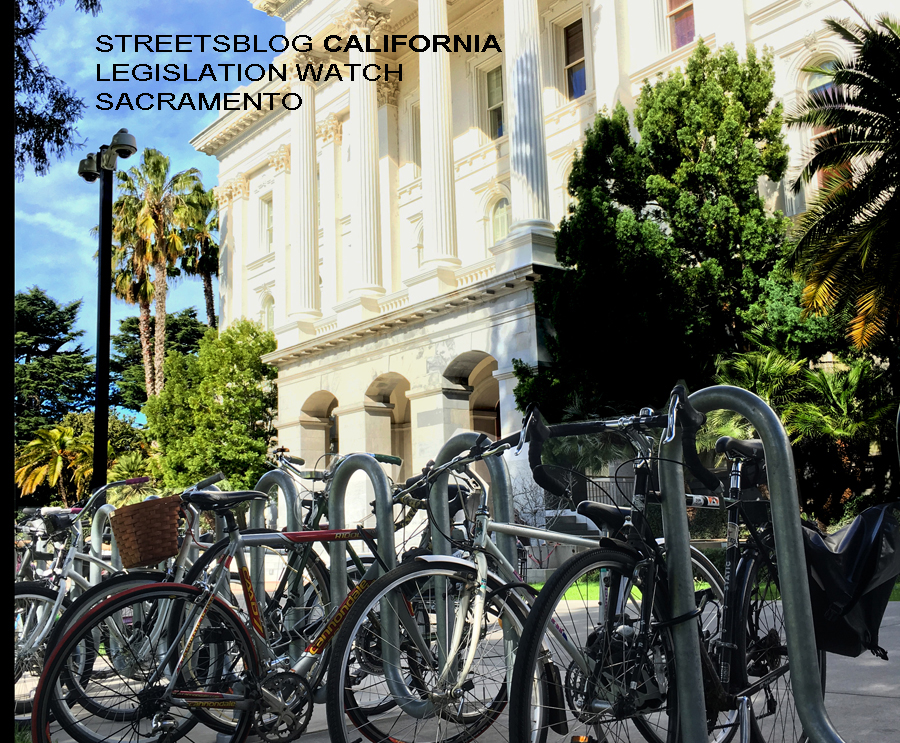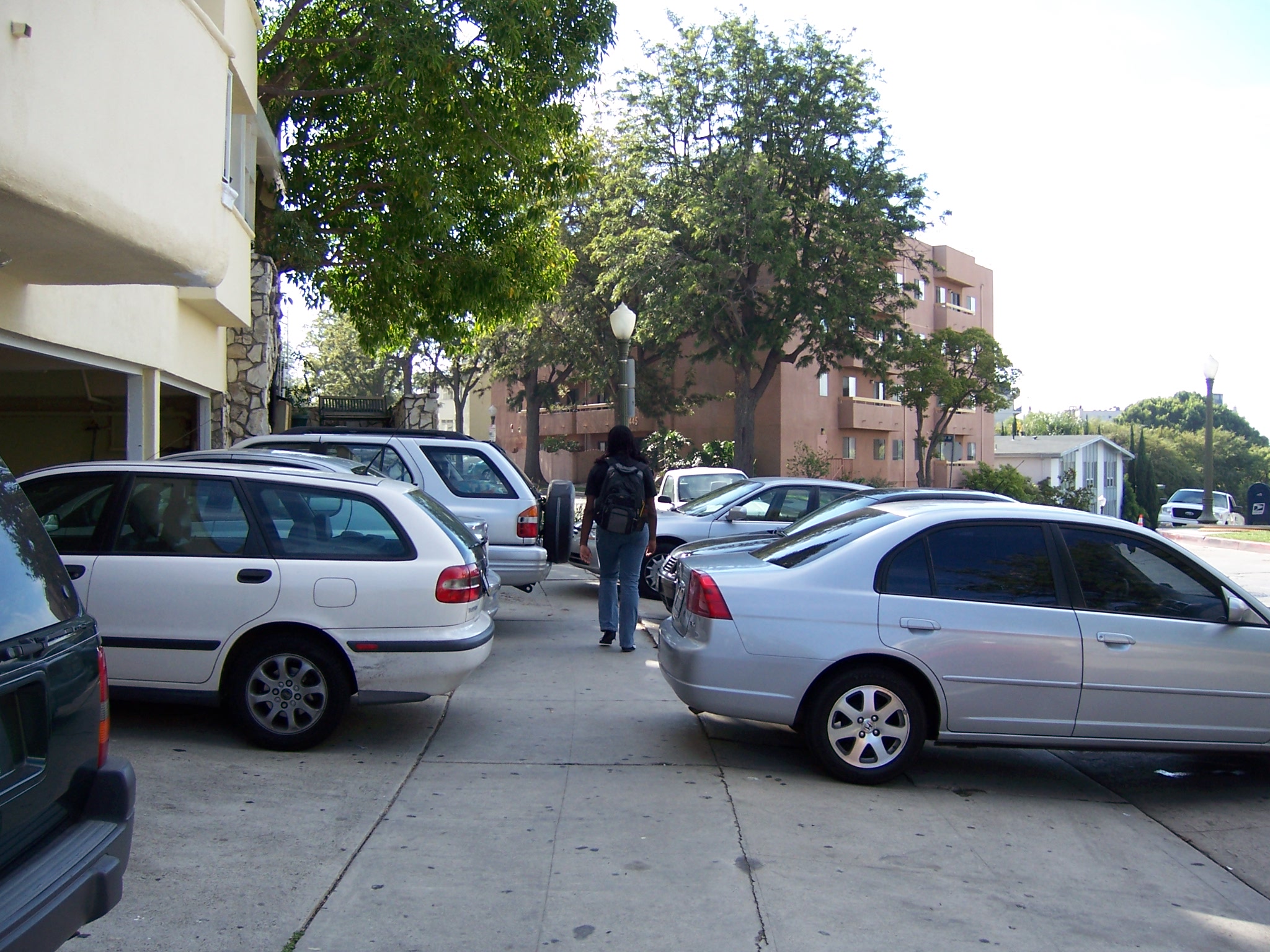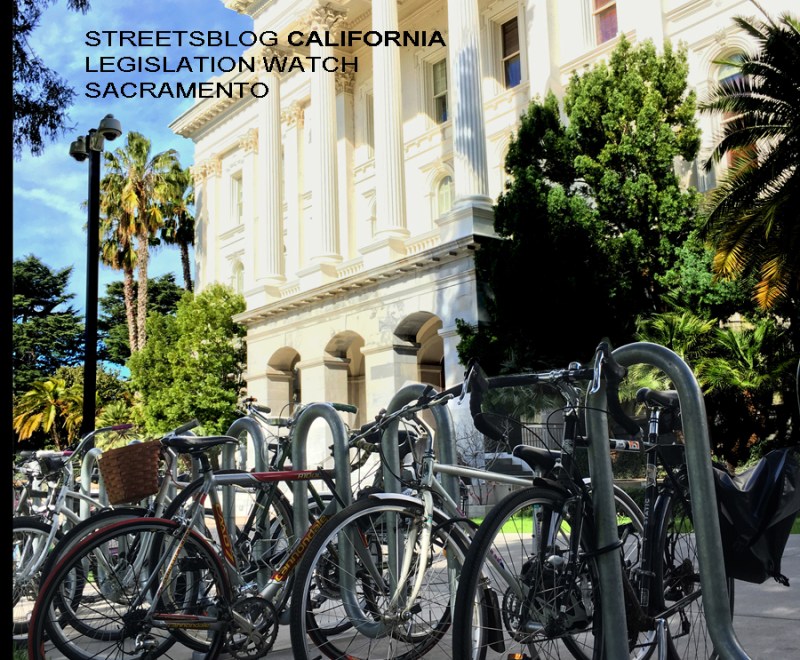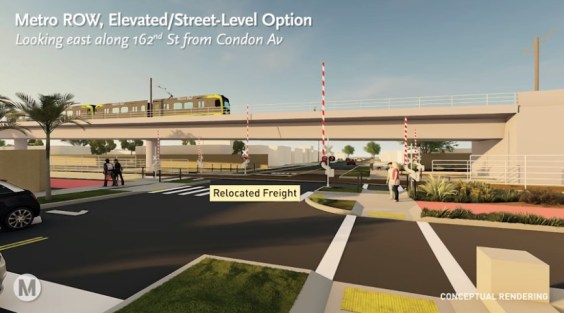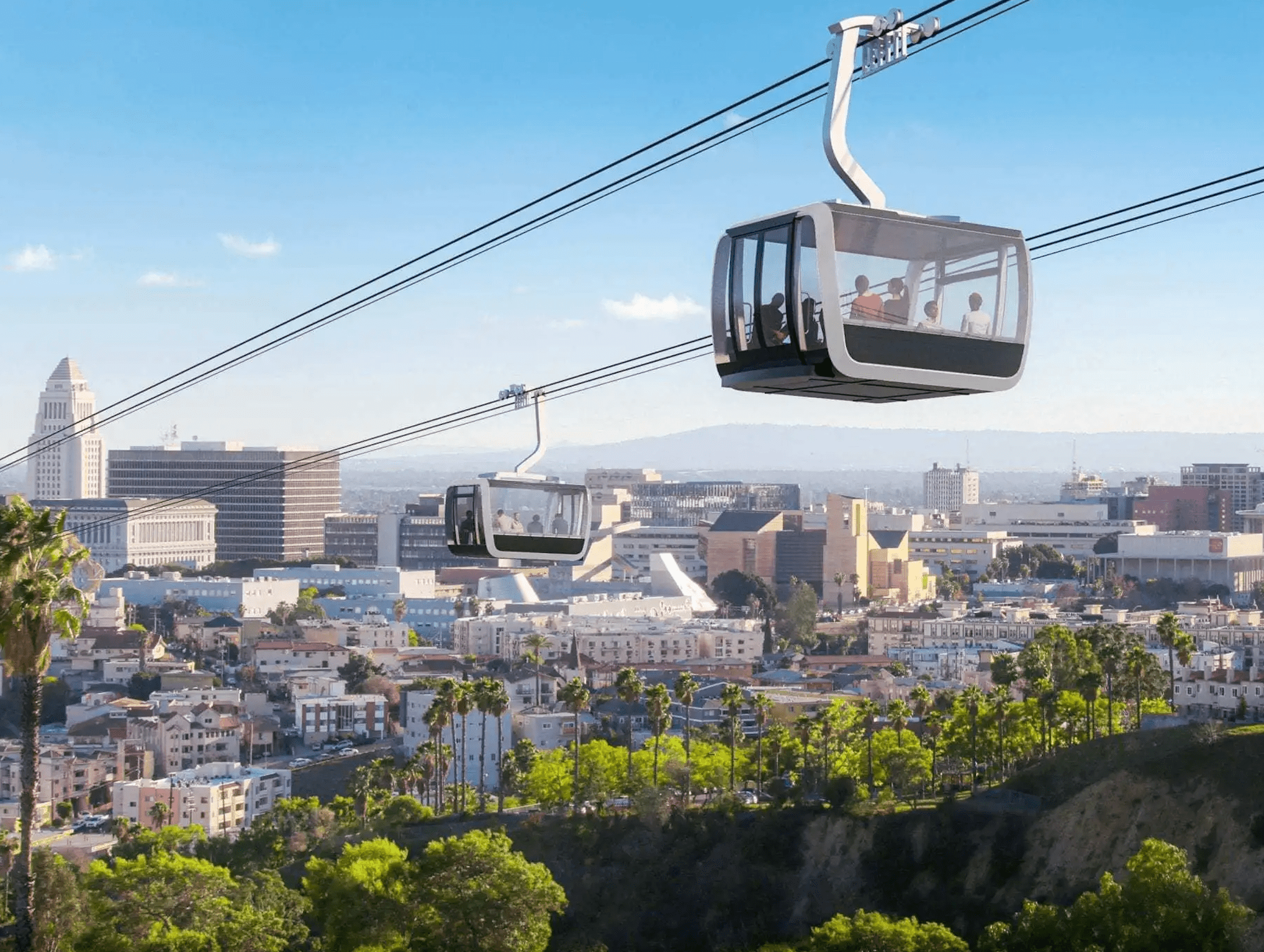Note: GJEL Accident Attorneys regularly sponsors coverage on Streetsblog San Francisco and Streetsblog California. Unless noted in the story, GJEL Accident Attorneys is not consulted for the content or editorial direction of the sponsored content.
Gas Tax Update
The Senate Transportation Committee heard an update this week on progress made in investing last year's gas tax. The hearing focused on how the revenue is helping clear a "huge backlog of maintenance," although Committee Chair Jim Beall (D-Campbell) cautioned that "work to repair our transportation system is only beginning."
Committee members learned that over 2,000 maintenance and rehabilitation projects are underway thanks to funding under the Local Streets and Roads program, among others. The gas tax's now-reliable funding stream has allowed several cities to establish road maintenance programs for the first time. Transit projects, including rail expansions, service and capacity improvements on buses and trains, purchase of electric buses and electrification of train systems, are moving forward. The Active Transportation Program has seen an increase in its budget. Caltrans has been hiring and training workers, and, it says, becoming more efficient in its use of time and money.
The only mention of climate change--or of investing S.B. 1 funds in a way that supports California's climate goals--was when Darrell Johnson of Orange County Transit Authority spoke. He told the committee that his agency was able to avoid deep cuts in transit service thanks to S.B. 1 funding. "And we can potentially expand service, to support greenhouse gas emissions reductions," he said. "S.B. 1 has had a huge impact on our transit maintenance, operations, and capital spending. Without it we would have been faced with cutting nearly eleven percent of our service within a short period of time."
A report from Caltrans' new Inspector General outlined how many reviews and audits her staff has completed or is working on. The office is also tasked with studying the department's efforts to be more efficient, but to date, she said, her staff has focused only on methodology--that is, whether the department is asking the right questions about efficiency. There has not yet been any audit of actual dollars.
Although Caltrans has been able to hire new workers, the tight labor market is a problem. Senator Mike McGuire (D-Healdsburg) was especially interested in this issue. He closely questioned Jim Davis, representing the director of Caltrans, about the department's long-term hiring strategy. "We can't compete [with the private sector]--that goes for both entry level jobs and in terms of retaining employees," said McGuire.
"No one wants government workers to make a lot of money," he said, "but taxpayers benefit when public employees are paid a livable wage." Caltrans had no response.
Tying Transportation Funds to Housing Goals
Meanwhile, in another room at the Capitol, several state budget committees were meeting together to discuss housing proposals floated by Governor Newsom [Agenda here: PDF]. Those include his idea to condition transportation funding allocations on new housing production.
Newsom floated the idea at his budget presentation, but without offering any details. A little more information emerged at the hearing, but it is still confusing people. A representative of the governor's financial team had to explain several times that Newsom is not proposing to use transportation funds for anything other than transportation projects. Instead, his team is "exploring ways of tying the allocation of those funds to housing production" as a way to prod reluctant cities to produce much-needed housing.
Nevertheless, it met quick resistance from committee members. Assemblymember Cecilia Aguiar-Curry (D-Winters) said the idea "is not something that I think should be on the table."
Assemblymember Jim Cooper (D-Elk Grove) said S.B. 1 was hard to pass, and voters who approved it "have a certain expectation that those funds be used for what was promised."
Newsom's representative reiterated that the idea was not yet fully formulated. "We're still working through the details. We are considering linking Local Streets and Roads funds under S.B. 1 to meeting housing production goals, but we would give time to locals to work towards those goals before these fundings are withheld," she said.
Assemblymember Tasha Boerner-Horvath (D-Encinitas) argued against the idea because cities are currently only accountable for planning housing, not producing it. "Production goals are on the private market," she said. "Cities cannot be held responsible for that."
The problem is that it has been hard to hold cities accountable for even that. Partly that's because the state provides relatively little funding to build housing--but it does allocate transportation funding, and a lot of it. It's an interesting concept to connect the two, but the idea needs work.
KQED's Guy Marzorati, in his report on the meeting, quotes a representative from the Department of Finance, who said exactly that:
"There are multiple different goals that could be looked at and determined whether good faith progress is being made toward housing goals," he said. "I think that’s all part of the deliberation that’s happening before we decide on any final numbers or final goals or what is going to be tallied to determine compliance."
At the same hearing, the Legislative Analyst's Office recommended the legislature reject another proposal, which was to offer incentives for short-term housing construction. The LAO representatives called it a "risky bet" compared to straight subsidies. Past experience, they said, haven't proven that incentives to help increase housing much, and do not seem to have helped overcome local resistance to building more housing.
Among the more than 2,500 bills introduced by last Friday's deadline, several hundred of them deal with housing--so expect a lot more discussion on these issues in the coming months.
